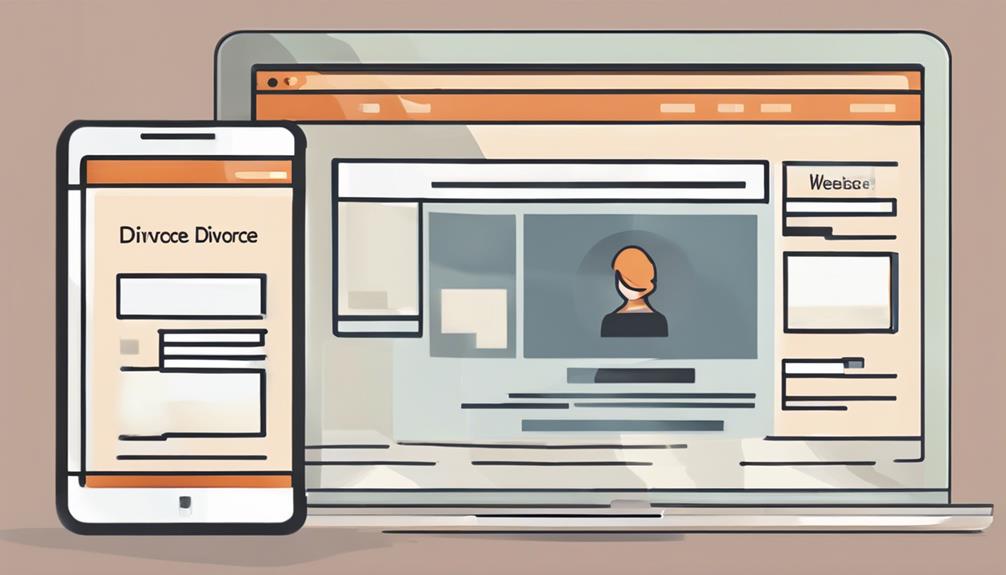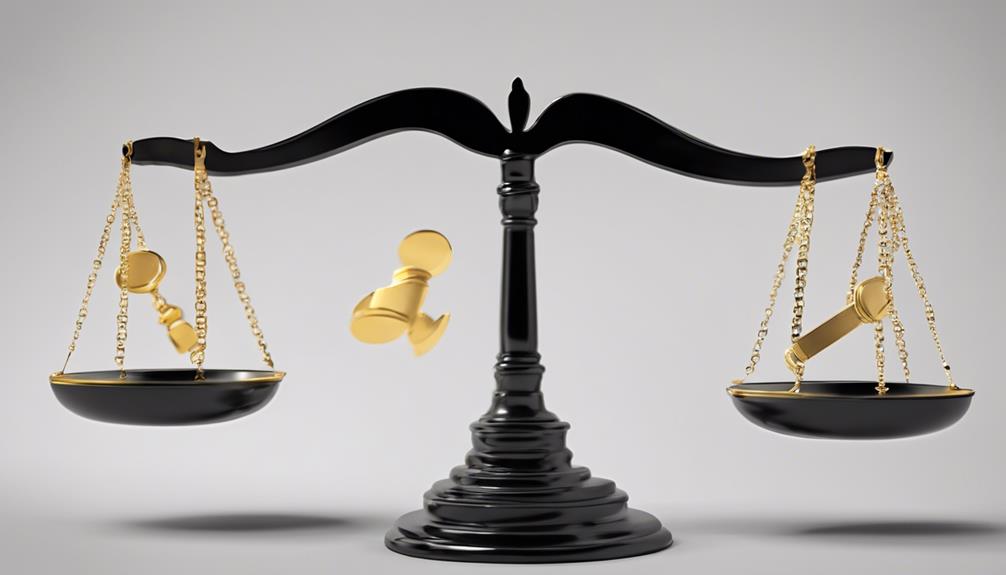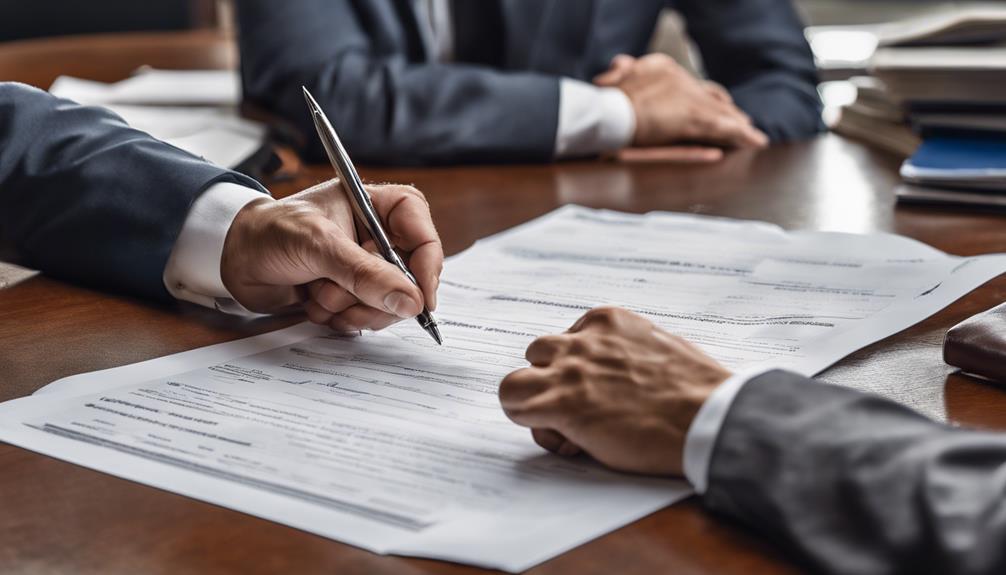Finding out that your divorce lawyer has abandoned you can be very unsettling, causing a range of emotions. Your initial reaction may be to panic or become angry, but it is important to stay calm. Understanding the reasons behind your lawyer’s departure and planning your next steps carefully can help navigate your divorce proceedings more smoothly.
First and foremost, it’s important to stay calm and gather all the relevant information regarding your case. This includes any communication from your lawyer about their decision to withdraw, as well as your own documentation of the divorce process so far. With this information at hand, you can begin to assess your options and plan your next steps effectively.
Understanding the Grounds for Withdrawal
Legal representation involves various ethical and professional standards that lawyers must adhere to. When these standards are compromised, or certain conditions aren’t met, a lawyer might file a motion to withdraw from representing a client. Understanding these grounds is essential for clients facing such situations.

Common Reasons Your Attorney Might File a Motion to Withdraw
Failure to Pay Fees
One of the most common reasons for a lawyer to withdraw from a case is the failure of the client to fulfill financial obligations. During the initial consultation, fee agreements are typically established. If a client consistently fails to meet these financial commitments, the lawyer may decide to withdraw from the case, necessitating the search for new legal counsel.
Withholding Information or Dishonesty
An experienced lawyer relies on honesty and transparency from their client to provide effective legal representation. When a client withholds information or is dishonest about the details of their case, it undermines the lawyer’s ability to advocate on their behalf. In such instances, a lawyer may choose to withdraw from the case to maintain their professional integrity.
Disagreements on Legal Strategy

Occasionally, disagreements on the best legal strategy to pursue might arise between a client and their lawyer. If these disagreements cannot be resolved, and the lawyer believes that the chosen strategy is not in the client’s best interest, they may file a motion to withdraw. This action ensures that clients can seek representation that aligns with their legal approach.
Conflict of Interest
A conflict of interest can occur when a lawyer’s ability to represent a client impartially is compromised. This could be due to personal reasons or because the lawyer is representing another party with opposing interests. When such conflicts arise, ethical standards require the lawyer to withdraw from representing the client to protect the integrity of the legal process.
Immediate Actions to Take If Your Lawyer Withdraws
When your lawyer decides to withdraw from the case, it’s crucial to act promptly to minimize disruptions to your divorce process. Seeking new legal counsel should be your top priority. Begin by researching divorce attorneys who possess extensive experience and a communication style that matches your needs. Additionally, inform the court and the opposing counsel about the change in your representation to avoid unnecessary delays in your proceedings.
Consider Your Options Carefully
After a lawyer withdraws from your case, taking the time to carefully consider your next steps is important. Whether your lawyer wants to withdraw due to personal reasons or professional disagreements, your focus should be on finding a suitable replacement who can effectively represent your interests in the divorce proceedings.

Assessing the Situation and Planning Your Next Move
Assessing the reasons behind your lawyer withdrawing from your case is essential. Understanding the underlying issues can help you address any concerns that might affect your relationship with your next lawyer. This reflection period also allows you to clarify your legal and personal goals for the divorce, ensuring a smoother transition to new representation.
The Importance of Quick Decision-Making
While it’s necessary to consider your options carefully, quick decision-making is equally crucial. Delays in securing new legal representation can result in missed deadlines or other complications in your divorce proceedings. Prioritize finding a new lawyer who can quickly get up to speed on your case and advocate effectively on your behalf.
The Process of Lawyer Withdrawal and Its Impact on Your Case
When a lawyer withdraws from a case, they must follow specific legal protocols, including filing a motion to withdraw and obtaining court approval. This process ensures that the client’s rights are protected throughout the transition. However, the withdrawal can lead to delays and complications, emphasizing the importance of swift action in securing new representation.
How an Attorney Officially Withdraws From a Case
The process of attorney withdrawal involves formally ending the attorney-client relationship, typically through a motion filed with the court. This motion outlines the reasons for the withdrawal and seeks court approval. The law firm is required to notify the client and provide sufficient time for the client to hire an attorney, ensuring that the divorce process continues with minimal disruption. Court orders and the need for new legal representation highlight the significance of understanding this process.
The Role of a Motion to Withdraw in the Legal System
A motion to withdraw serves as an official request for a lawyer to be released from their duty to represent a client. Personal reasons, financial obligations, and client behavior can all be grounds for this motion. The court reviews the motion to ensure that withdrawing from the case does not harm the client’s interests and may grant the motion if it finds the reasons to be justified.
Potential Delays and Complications in Your Divorce Proceedings
The withdrawal of your lawyer can introduce delays and complications into your divorce proceedings. These can range from the time it takes to find and hire a new attorney to potential setbacks in case management and strategy. Being proactive in addressing these challenges is key to minimizing their impact and moving forward towards a resolution.

Hiring a New Divorce Attorney: Steps to Ensure a Smooth Transition
When your divorce lawyer withdraws from your case, it’s crucial to remain calm and assess the situation. Gather your thoughts and notify the court about your attorney’s withdrawal. This step is vital for maintaining the professional standards of the legal process. Next, begin the search for legal assistance promptly to prevent any delay in your proceedings. Hiring a divorce attorney who aligns with your case’s needs and your personal values is essential for a smooth transition and continued progress in your divorce case.
When to Start Looking for a New Attorney
Start looking for a new attorney immediately after yours withdraws from the case, especially if your attorney quit and a hearing is set. This urgency is because the court process will not pause, and having legal representation is crucial. If your previous attorney withdrew because a client fails to meet certain obligations, ensure these issues are addressed before hiring a new lawyer.
Identifying the Criteria for Selecting the Right Lawyer
When selecting a new lawyer, the attorney-client relationship is paramount. Look for an attorney who is not only skilled in divorce and family law but also values communication and transparency. Ensure they have a strong track record with cases similar to yours and that they explicitly understand your goals and expectations. This alignment is crucial for building a strong foundation for your case.
Why Hiring a Skilled Divorce Attorney Is Crucial
A skilled divorce attorney brings invaluable expertise and guidance to your case. They understand the complexities of divorce law and can navigate the legal system effectively, ensuring your rights are protected. A competent lawyer will also provide strategic advice tailored to your unique situation, which is crucial for reaching a favorable outcome.

Preventing Future Issues: Tips for a Drama-Free Lawyer-Client Relationship
To prevent future issues and ensure a smooth lawyer-client relationship, clear communication and mutual respect are essential from the start. Both parties should agree on the rules of professional conduct and expectations. This clarity helps in minimizing misunderstandings and conflicts, making the legal process more efficient and less stressful for both the client and the attorney.
Establishing Clear Communication and Expectations
From the moment you hire an attorney, establish clear communication channels and set realistic expectations. This foundation will help in maintaining a productive relationship throughout the legal process.
Understanding Your Role in the Legal Process
Understanding your role in the legal process involves being an active participant in your case. This means providing all necessary information to your attorney, responding to their requests promptly, and making informed decisions based on their advice. Your involvement is crucial for the success of your case.

Importance of Transparency and Cooperation
Transparency and cooperation between you and your attorney can significantly influence the outcome of your divorce case. Being honest and forthcoming with information allows your lawyer to advocate effectively on your behalf. Likewise, cooperating with your lawyer’s requests and advice fosters a strong attorney-client relationship, leading to more favorable results.
Legal and Financial Implications of Your Lawyer Dropping Your Case
The attorney-client relationship is foundational to your divorce proceedings. When an attorney may withdraw, it’s important to remain calm and assess the situation. Gather your thoughts, notify the court, and understand that your attorney’s withdrawal must align with professional standards. This unexpected change can lead to potential delays and increased costs as you seek new representation. Being proactive in finding a new divorce lawyer can mitigate these challenges.
Navigating the Financial Aspects of Changing Lawyers
Changing lawyers mid-case often incurs additional costs. Be prepared for these financial implications.
Understanding Costs and Fees Associated with Hiring a New Attorney
When hiring a new attorney, it’s crucial to discuss costs and fees during the initial consultation. This conversation should cover their hourly rate, retainer fee, and any additional costs that might arise during your case. Understanding these financial aspects upfront can help you budget accordingly and avoid surprises down the line.
Alternative Dispute Resolution Options
If your lawyer withdraws from your case, consider alternative dispute resolution options like mediation. Sometimes, when a lawyer wants to withdraw, it can signal that a different approach may be more suitable for your situation. Mediation, for example, can offer a less adversarial and more cost-effective way to resolve your divorce.
Considering Mediation as a Drama-Free Divorce Solution
Mediation could be the drama-free solution you need.

Benefits of Choosing Alternative Dispute Methods
Alternative dispute methods, such as mediation, require the court’s permission before proceeding. This process is typically faster and less costly than traditional litigation. Additionally, because both parties work collaboratively to reach a resolution, mediation often results in agreements that are more mutually satisfactory. However, it’s important to note that an attorney must file a motion for their withdrawal to pursue these alternatives, ensuring that the attorney’s withdrawal is handled professionally.
Final Thoughts: Moving Forward After Your Attorney Quits
Moving forward after your attorney quits a case requires resilience and adaptability. It’s crucial to quickly reassess your situation and seek new legal representation to keep your divorce proceedings on track. Hiring a skilled attorney in divorce and family law can make a significant difference in the outcome of your case. Remember, the key to overcoming this hurdle is staying informed, proactive, and open to alternative dispute resolution methods if they suit your situation better.
Staying Informed and Proactive in Your Divorce Case
When facing the scenario where a lawyer decides to quit, it becomes crucial for individuals to remain informed and proactive throughout their divorce proceedings. This means keeping abreast of all legal developments and understanding the specific actions required, such as when a lawyer files a motion with the court to officially request to withdraw from a case. In situations like this, especially in jurisdictions like Kansas City, it’s imperative to promptly address any issues that might have led to the withdrawal, whether it’s a matter of unpaid fees or other disputes. Being proactive also involves preparing to find a new attorney without delay to minimize the impact on your case.
The Significance of Adaptability and Resilience in Legal Matters
Adaptability and resilience are indispensable traits in navigating the complexities of legal matters, particularly in the context of divorce. The journey may be fraught with unexpected changes, such as the need for a lawyer to withdraw from your case. This requires an ability to quickly adjust to new circumstances, whether it’s understanding the nuances of filing a motion with the court or grappling with the reasons behind your attorney’s decision to quit. Furthermore, resilience empowers individuals to face these challenges head-on, ensuring they remain focused on their legal goals despite the hurdles. Embracing adaptability and resilience not only helps in smoothly managing the transition to a new attorney but also in maintaining a sense of control over the divorce proceedings.










